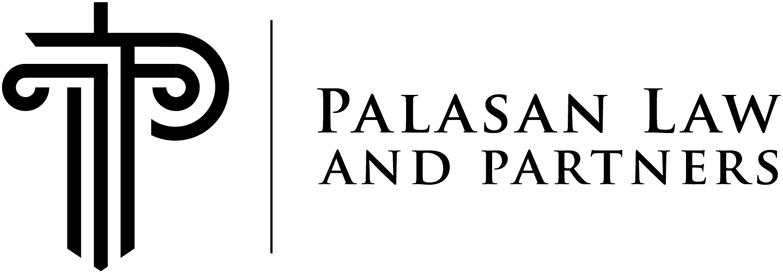The Supreme Court has denied the petition seeking to nullify the Department of Transportation’s (DOTr) “Public Utility Vehicle Modernization Program” (PUVMP).
In a Decision penned by Associate Justice Maria Filomena D. Singh, the Supreme Court En Banc denied the petition for certiorari and prohibition filed by petitioners Bayyo Association. Inc. (Bayvo) and Anselmo D. Perweg, in his capacity as President of Bayyo.
Bayyo, representing itself as an association consisting of 430 jeepney operators and drivers registered with the Securities and Exchange Commission (SEC) and operating in various routes in Metro Manila, is challenging the validity of DOTr Department Order (DO) No. 2017-011, which provides for the implementation of the PUVMP.
Pursuant to the national government policy to authorize and promote safe, reliable, efficient, and environment-friendly Public Utility Vehicles (PUVs), DO No. 2017-011 sets out new vehicle specifications, franchise issue procedures, and practices for all PUVs, which include public utility buses (PUBs), mini-buses, public utility jeepneys (PUJs), utility vehicle (UV) express services, Filcab services, school services, taxi services, transportation network vehicle services (TNVS), tourist transport services, and shuttle services.
The petitioners argued that DO No. 2017-011 is an invalid delegation of legislative power and that paragraph 5.2 of DO No. 2017-011 is unconstitutional for being violative of the due process and equal protection clauses of the Constitution.
They claimed that the said provision entails the phaseout and replacement of old PUVs with brand new and environment-friendly units.
The Court ruled that the petition must be denied for the petitioners’ lack of legal standing and violation of the principle of hierarchy of courts.
The Court stressed that no question involving the constitutionality or validity of a law or governmental act may be heard and decided by the Court unless there is compliance with the following legal requisites for judicial inquiry: (a) there must be an actual case or controversy calling for the exercise of judicial power; (b) the person challenging the act must have the standing to question the validity of the subject act or issuance; (c) the question of constitutionality must be raised at the earliest opportunity; and (d) the issue of constitutionality must be the very lis mota of the case.
The Court found that the petition lacked the second requisite as the petitioners do not possess the legal standing to file the suit. While the third-party standing of an association to sue on behalf of its members has been recognized by the Court, such association must establish who their members are, and that it has been duly authorized by its members to represent them or sue on their behalf.
In the case of Bayyo, which invokes its standing as a legitimate association of jeepney operators and drivers in the different parts of Metro Manila, the Court found that Bayyo failed to submit any proof to support its claim that it is a legitimate association of PUJ operators and drivers.
While Bayyo attached a Certificate of Registration issued by the SEC, the same merely proves its registration as an association, but does not establish that its members are indeed PUJ operators and drivers. Accordingly, due to the absence of Bayyo’s Articles of Incorporation and By-Laws or any other competent proof, the Court cannot ascertain its legal standing as an association of PUJ operators and drivers.
Bayyo also failed to establish who its members are and that it has been duly authorized by said members to institute the petition.
The petition further violated the principle of hierarchy of courts, which requires that a petition must first be brought before the lowest court with jurisdiction and then appealed until it reaches this Court. This concurrent jurisdiction does not give the party discretion on where to file a petition, as non-compliance with this requirement is a ground for dismissal.
Under this doctrine, the Court is allowed only to resolve questions of law, notwithstanding the invocation of paramount or transcendental importance of the action. “This doctrine is not mere policy, rather, it is a constitutional filtering mechanism designed to enable the Court to focus on the more fundamental and essential tasks assigned to it by the highest law of the land,” stressed the Court.
While there are exceptions to the rule, the petitioners were unable to justify deviation from the doctrine as the issues they raised are not purely legal.
The Court ruled that the determination of whether DO No. 2017-011 is confiscatory, anti-poor, and deprives PUJ operators and drivers of their source of livelihood; of the purported financial impact of the modernization program on PUJ operators and drivers, including, among others, the cost of modernizing jeepneys, the loans and debts that will be obtained by PUJ operators and drivers to purchase the units; and of the alleged losses in the daily income that will be sustained by the PUJ operators and drivers as a result of the implementation of DO No. 2017-011, are all factual questions which entail the reception and evaluation of evidence.
“These factual issues should have been first brought before the proper trial courts or the Court of Appeals, both of which are specially equipped to try and resolve factual questions,” said the Court. (Courtesy of the Supreme Court Public Information Office)
FULL TEXT of G.R. No. 254001, Bayyo Association, Inc. v. Secretary Tugade (July 11, 2023) at: https://sc.judiciary.gov.ph/254001-bayyo-association-inc-and-anselmo-d-perweg-in-his-capacity-as-president-of-the-association-vs-secretary-arthur-p-tugade-secretary-carlos-s-dominguez-secretary-wendel-eliot-avisado-and/
Full text of the Concurring Opinion of Acting Chief Justice Marvic M.V.F. Leonen at: https://sc.judiciary.gov.ph/254001-concurring-opinion-saj-marvic-m-v-f-leonen/

